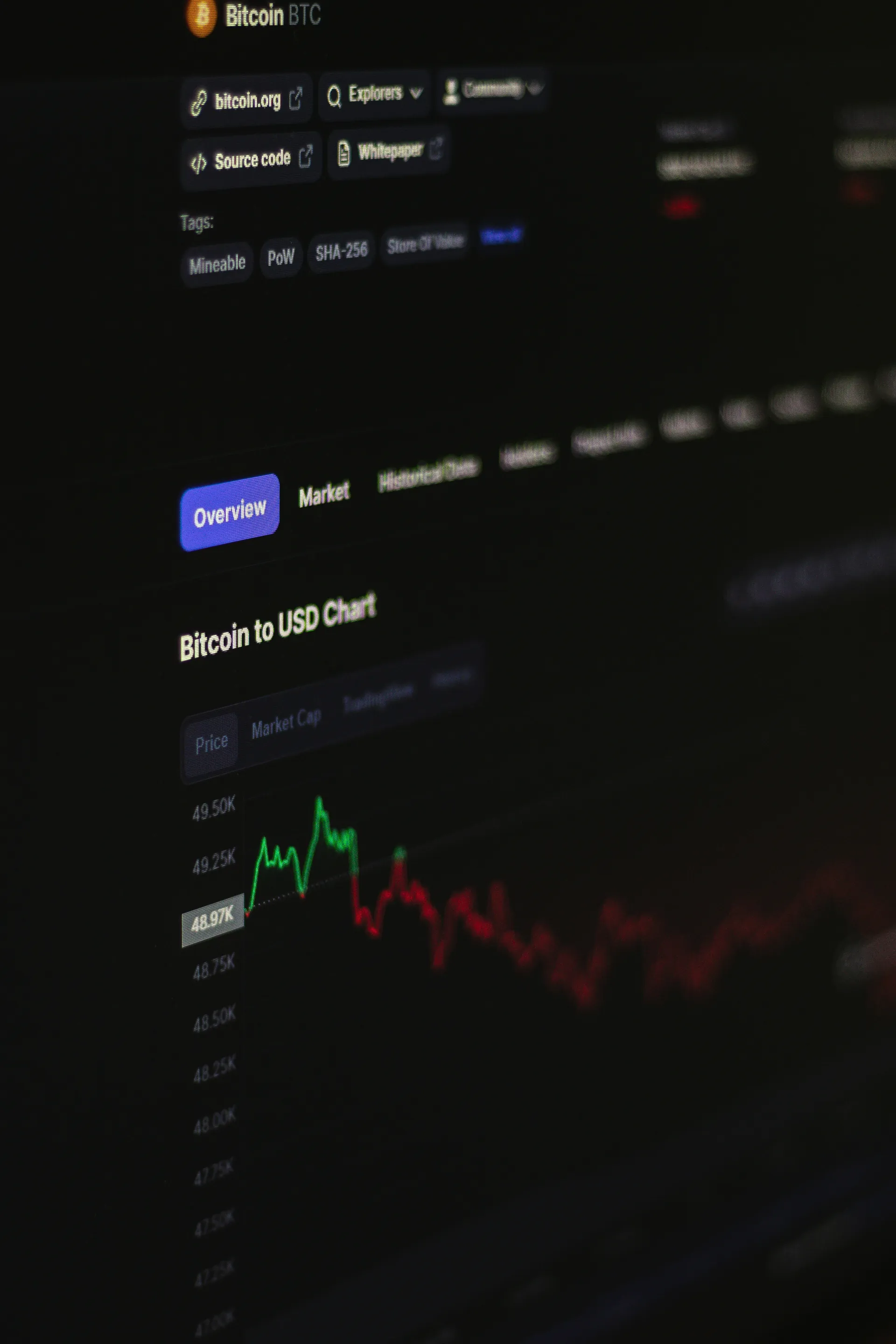Embarking on your cryptocurrency journey necessitates a pivotal choice: selecting the optimal crypto exchange. The abundance of choices might seem daunting as you sift through to find the platform that aligns with your trading aspirations.
At the heart of the cryptocurrency market are the crypto exchanges, essential for the buy, sell, and trade of digital currencies like Bitcoin, Ethereum, among others. These platforms are distinguished by their offerings, ranging from intuitive interfaces and sophisticated trading tools to stringent security protocols and reasonable trading fees.
Regardless of whether you’re stepping in as a beginner or diving deeper as a seasoned investor, finding your ideal crypto exchange hinges on various aspects. These include the diversity of cryptocurrencies offered, trading fees, security of your investments, and the level of customer support. This article aims to explore the top 10 crypto exchanges in 2025, shedding light on their distinct features, advantages, and any possible shortcomings. Our goal is to equip you with the knowledge to choose a cryptocurrency exchange that best fits your trading needs and preferences.
Criteria for Ranking the Exchanges

When evaluating the top crypto exchanges, it’s important to consider several key criteria to ensure these platforms align with traders’ needs and expectations. Below are the primary factors that guide our rankings:
Security Enhancements
Security stands as the cornerstone for any crypto exchange, safeguarding users’ digital assets. Premier exchanges deploy stringent security measures, including multi-factor authentication (MFA) with biometrics (fingerprint or facial recognition) and superior encryption protocols (SSL and AES). Cold wallet storage plays a pivotal role by storing the bulk of assets offline, shielding them from cyber threats.
Conducting regular security audits, penetration tests, and code reviews is vital to unearth and rectify vulnerabilities preemptively. Furthermore, adherence to regulatory frameworks, such as Know Your Customer (KYC) and Anti-Money Laundering (AML) regulations, is imperative for maintaining trust and legal compliance.
Volume and Liquidity
The volume and liquidity of a crypto exchange are key metrics of its stability and dependability. High trading volumes and robust liquidity mean that users can execute cryptocurrency transactions swiftly and at reasonable prices. Exchanges with superior liquidity usually offer narrower bid-ask spreads, minimizing price slippage and optimizing trading efficiency.
This factor is key in pinpointing exchanges capable of managing large transactions without significant price fluctuations.
User Experience and Interface
An accessible and engaging interface is vital for traders at all levels. The leading crypto exchanges boast intuitive and compelling UI/UX designs, making complex trading operations straightforward. Elements like clear onboarding processes, customizable dashboards, and detailed tutorials for various features significantly improve user satisfaction.
Efficient navigation systems featuring well-structured menus and search capabilities allow users to swiftly locate their needs.
Feasibility and Accessibility
The practicality and accessibility of a crypto exchange are fundamental for its utility. Factors such as the diversity of cryptocurrencies offered, straightforward processes for deposits and withdrawals, and the provision of advanced trading tools are essential.
Incorporating multiple payment options, including bank transfers and credit cards, further enhances user convenience. Additionally, dependable customer support via live chat, email, and other mediums is important for timely resolution of user inquiries and concerns.
Top 10 Crypto Exchanges in 2025

Here is a detailed look at the top 10 crypto exchanges that stand out in 2025, based on their performance, features, and user satisfaction.
1. Binance
Binance is one of the largest and most popular crypto exchanges globally, known for its high trading volumes and extensive range of cryptocurrencies. With over 1777 markets and 461 coins available, Binance offers a vast ecosystem for traders.
It boasts advanced trading tools, low trading fees, and a user-friendly interface. Binance also provides robust security measures, including multi-factor authentication and cold wallet storage, ensuring the safety of users’ digital assets.
2. Coinbase
Coinbase is a well-established and highly reputable crypto exchange, particularly popular in the United States. It is known for its intuitive and streamlined interface, making it an excellent choice for both beginners and experienced traders.
Coinbase supports over 260 cryptocurrencies and offers a range of products, including Coinbase Pro and Advanced Trade, which cater to different investor levels. The exchange is praised for its strong security record, educational resources, and customer support. Additionally, Coinbase provides features like staking rewards and a separate NFT trading platform.
3. Kraken
Kraken is one of the oldest and most secure crypto exchanges, renowned for its industry-leading security features. It offers trading in over 200 cryptocurrencies and provides access to margin and spot trading. Kraken’s comprehensive cybersecurity approach includes proof of reserves, cold wallet storage, and regular security testing.
The exchange also offers high-priority customer support through live chat and email, making it a trusted choice for investors seeking robust security and reliable customer service.
4. Bitfinex
Bitfinex is a centralized cryptocurrency exchange known for its advanced trading features and high liquidity. It supports a wide range of cryptocurrencies, including Bitcoin, Ethereum, and Litecoin. Bitfinex offers margin trading, lending services, and OTC trading, making it a favorite among professional traders.
The exchange also emphasizes security, with measures such as multi-factor authentication and cold storage, although it has faced some historical security concerns.
5. Gemini
Gemini stands out as a highly regulated and secure cryptocurrency exchange, particularly favored in the United States. It boasts a selection of over 70 cryptocurrencies for trading and is celebrated for its transparent, compliant operations. Gemini caters to users with a friendly interface, sophisticated trading tools, and formidable security measures such as cold storage and multi-factor authentication.
Additionally, the exchange enriches its offerings with a rewards program and services tailored for institutional investors, positioning it as an attractive option for both individual and institutional participants in the crypto market.
6. Bitstamp
As one of the oldest and most trusted crypto exchanges, Bitstamp facilitates trading in over 80 cryptocurrencies. It is distinguished by its competitive fees, particularly appealing to high-volume traders, and stringent security protocols, including multi-factor authentication and cold storage solutions.
Bitstamp appeals to a broad user base with its intuitive interface, support for various payment methods like bank transfers and credit cards, and provision of advanced trading tools alongside dependable customer support.
7. Bittrex
Bittrex, a US-based cryptocurrency exchange, is renowned for its expansive selection of supported cryptocurrencies, offering access to over 300 coins. It features advanced trading options such as spot and margin trading, backed by strong security practices. Bittrex prides itself on adherence to regulatory standards and offers an easy-to-navigate interface, making it a preferred choice for traders.
However, it has encountered regulatory hurdles in the past.
8. Huobi Global
Huobi Global commands a significant presence in the crypto exchange arena, especially in Asia, while also expanding its global reach. It supports trading in more than 400 cryptocurrencies and is lauded for its sophisticated trading tools and competitive fee structure.
The platform is user-friendly, equipped with stringent security measures, and offers a diversity of payment options. Huobi Global is versatile, supporting margin trading, OTC trading, and staking services, catering to a wide range of trading needs.
9. FTX (Assuming it recovers or is reinvented)
FTX, known for its innovation and competitive fees, faced significant challenges but was once a premier crypto exchange. Should it recover or undergo reinvention, it has the potential to reclaim its status as a leading platform. FTX was especially popular for its derivatives, spot trading, and staking services.
The platform was user-friendly, with stringent security protocols including multi-factor authentication and cold storage. A comeback or reinvention could see the return of its advanced trading tools and appealing fee model.
10. OKEx
OKEx stands out as a leading global cryptocurrency exchange, boasting a diverse portfolio of over 329 cryptocurrencies. Renowned for its sophisticated trading features, it offers users a variety of options including spot trading, margin trading, and futures trading.
The platform is designed with user convenience in mind, featuring a straightforward interface, top-tier security protocols such as multi-factor authentication and cold storage solutions, and a broad selection of payment methods. OKEx caters to a global audience by supporting numerous fiat currencies and maintains competitive trading fees, securing its position as a favored exchange among traders.
Emerging Trends and Future Outlook

As the cryptocurrency landscape continues to evolve, several emerging trends and developments are set to shape the future of crypto exchanges and the broader cryptocurrency market.
Decentralized Exchanges (DEXs)
Decentralized exchanges (DEXs) are gaining significant traction, offering an alternative to traditional centralized exchanges. DEXs operate on blockchain networks, allowing for peer-to-peer transactions without the need for intermediaries.
This decentralized approach enhances security, reduces the risk of hacking, and promotes greater transparency and control for users. Companies like SDLC Corp are focusing on developing advanced p2p crypto exchange software that leverages blockchain technology to enhance liquidity and user experience while adhering to decentralized principles.
DEXs also integrate DeFi products, such as yield farming and staking, which attract a broader user base and provide additional revenue streams for traders. As DEX technology improves, we can expect to see more sophisticated trading tools and better user interfaces, making decentralized trading more accessible and appealing to a wider audience.
Regulatory Changes
Regulatory developments are poised to significantly impact the cryptocurrency industry in 2025. The Trump administration and the SEC have signaled a shift towards a more comprehensive and clear regulatory framework for crypto assets. The creation of a crypto task force led by Commissioner Hester Peirce aims to establish clear regulatory lines, provide realistic paths to registration, and craft disclosure guidelines.
This move is expected to bring more clarity and stability to the market, encouraging institutional investment and broader adoption.
The European Union’s Markets in Crypto Assets Regulation (MiCA) and the U.S. Crypto EO are also shaping the regulatory landscape. These regulations aim to provide a regulated path for crypto assets, including electronic money tokens, and to make it easier for crypto companies to access banking services.
However, ongoing legal battles, such as the lawsuit challenging the SEC’s authority to regulate digital asset trading platforms, highlight the ongoing regulatory uncertainties and the need for further clarification.
Technological Innovations
Technological innovations are driving the next wave of growth in the cryptocurrency sector. The integration of artificial intelligence (AI) and machine learning is transforming how crypto exchanges operate. AI is being used to enhance trading strategies, optimize blockchain protocols, and detect fraudulent activities in real-time.
It also helps in predicting network congestion, optimizing gas fees, and ensuring smooth transactions, thereby addressing scalability and efficiency challenges.
Real-world asset (RWA) tokenization is another significant trend, bridging the gap between traditional finance and blockchain-based markets. This allows for the tokenization of assets such as real estate, fine art, stocks, and commodities, making elite markets accessible to everyday traders through fractional ownership and instant settlements.
Additionally, advancements in blockchain technology, such as Ethereum’s upcoming upgrades, Layer-2 solutions like rollups and sharding, and modular blockchains like Celestia, are set to improve the scalability and efficiency of blockchain networks. These innovations will play a key role in maintaining the competitiveness and dominance of leading blockchains in the face of emerging challengers.
Conclusion
As we navigate the dynamic landscape of cryptocurrency in 2025, several key points stand out. The top crypto exchanges, such as Binance, Coinbase, and Kraken, are distinguished by their robust security, user-friendly interfaces, and advanced trading tools. Emerging trends include the rise of decentralized exchanges (DEXs), the expansion of crypto ETFs, and the increasing integration of blockchain with traditional finance, particularly through tokenized real-world assets and stablecoins.
Regulatory changes and institutional adoption are also shaping the market, with spot ETFs absorbing significant portions of Bitcoin’s circulating supply and futures markets showing a clear institutional long bias. Technological innovations, including AI and blockchain convergence, are further enhancing the efficiency and scalability of crypto markets.
As you consider your next steps in the crypto space, remember to prioritize security, stay informed about regulatory developments, and leverage the latest technological advancements. Whether you are a novice trader or an experienced investor, the evolving crypto landscape offers numerous opportunities for growth and innovation. Take the time to read reviews, understand the fees and features of different exchanges, and stay vigilant about market trends to make informed decisions.
FAQ
What are the key security measures that top crypto exchanges implement to protect user assets?
Top crypto exchanges safeguard user assets through various key security measures, such as:
- Multi-Factor Authentication (MFA): Adds an additional layer of security to user accounts.
- Encryption: Secures sensitive data using advanced encryption techniques.
- Cold Storage: Keeps the majority of funds offline to mitigate hacking risks.
- Multi-Signature Wallets: Requires several private keys to authorize transactions.
- Regular Security Audits: Performs frequent audits to detect and rectify vulnerabilities.
- KYC and AML Procedures: Ensures user identity verification and prevents money laundering.
How do centralized and decentralized crypto exchanges differ in terms of operation and user experience?
Centralized crypto exchanges, operated by companies, hold users’ assets and facilitate trades, offering fiat-to-crypto transactions, user-friendly interfaces, and services like margin trading. Conversely, decentralized exchanges operate on a peer-to-peer basis, using smart contracts for trustless transactions, granting users full control over their assets and private keys.
What factors should I consider when choosing the best crypto exchange for my trading needs?
In selecting a crypto exchange, evaluate aspects such as:
- Security: Look for features like two-factor authentication, cold storage, and encryption.
- Reputation and Track Record: Consider the history of security breaches and user feedback.
- Regulatory Compliance: Check for licensing, KYC, and anti-money laundering measures.
- Liquidity: Assess the ease of executing trades without significant price impacts.
- User Experience: Ensure an intuitive interface and availability of mobile apps.
- Range of Cryptos: Verify the supported cryptocurrencies and trading pairs.
- Fees: Understand all associated transaction, deposit, and withdrawal fees.
- Customer Support: Gauge the support team’s availability and responsiveness.
What are some common features and services offered by the top crypto exchanges in 2025?
By 2025, leading crypto exchanges feature:
- Support for multiple cryptocurrencies, like Coinbase with over 170 options.
- Mobile trading applications, for example, Crypto.com.
- Competitive fees across platforms such as Kraken and Binance.US.
- Advanced trading tools and analytics, seen in Gemini’s ActiveTrader.
- Staking and rewards programs, with some limitations in the U.S.
- Institutional and private wealth management services, offered by Abra.
- Robust security measures including cold wallet storage, SSL encryption, and round-the-clock customer support, as found in Kraken and Binance.US.
- Crypto debit cards and reward earning opportunities, available with Crypto.com Card and Coinbase Card.


